Allahumma Ajirni Fi Musibati Wa Akhlif Khairan Minha Meaning and Arabic
Allahumma ajirni fi musibati is a part of beautiful Dua that the prophet SAW taught his ummah to recite when calamity befalls on them. It is dua when afflicted with a calamity, misfortune, suffering and asking Allah for better than what was lost.
Advertisements
Here is the full meaning of this wonderful and short Dua.
Allahumma Ajirni Fi Musibati Meaning
Allahumma ajirni means O Allah! Compensate me in my affliction, recompense my loss and give me something better in exchange for it.
Allahumma Ajirni Fi Musibati In Arabic Text
اللَّهُمَّ أجُرْنِي فِي مُصِيْبَتي، وأخْلِفْ لِي خَيْراً مِنْهَا
Allahumma Ajirni Fi Musibati Transliteration
The transliteration is Allahumma-jurni fi musibati, wa akhlif li khairan minha
Advertisements
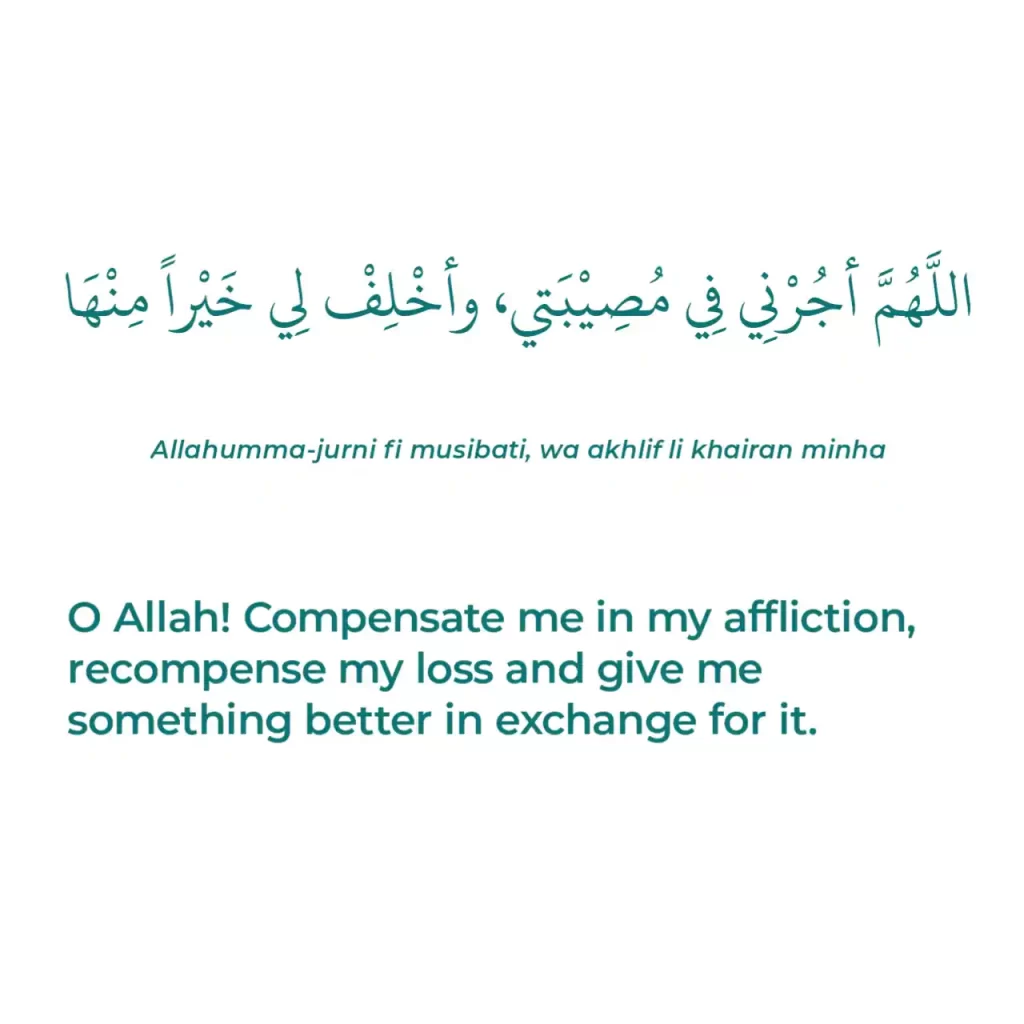
So if calamity befalls a Muslim, he must say
Inna Lillaahi wa inna ilayhi raaji’oon meaning Verily to Allah we belong and unto Him is our return), and say the Dua mentioned above.
How wonderful are those times when a person comes to his Lord and knows that He alone is the One Who provides relief from distress. How wonderful it is to be relieved after a period of adversity.
Allahumma Ajirni Fi Musibati Hadith
Narrated that Umm Salamah (may Allaah be pleased with her) said: I heard the Messenger of Allaah (peace and blessings of Allaah be upon him) say:
“There is no Muslim who is stricken with a calamity and says what Allaah has enjoined, ‘Verily to Allaah we belong and unto Him is our return. O Allaah, reward me for my affliction and compensate me with something better’ – but Allaah will compensate him with something better.”
She said: When Abu Salamah died, I said: Who among the Muslims is better than Abu Salamah, the first household to migrate to join the Messenger of Allaah (peace and blessings of Allaah be upon him)? Then I said it, and Allaah compensated me with the Messenger of Allaah (peace and blessings of Allaah be upon him).
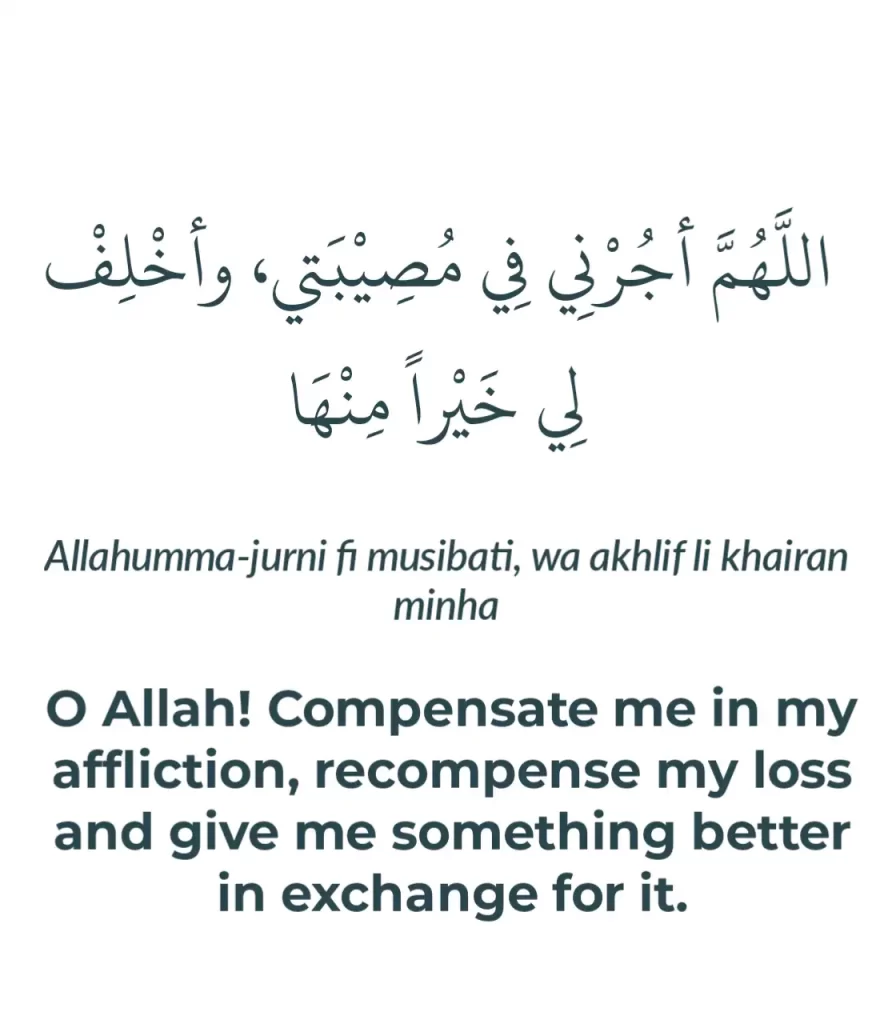
Commentary
Calamities and disasters are a test, and they are a sign of Allaah’s love for a person, since they are like medicine: even if it is bitter, you give it to the one you love, and for Allaah is the highest description.
In the saheeh hadeeth it says: “The greatest reward comes with the greatest trial. When Allaah loves a people He tests them.
Advertisements
Whoever accepts that wins His pleasure but whoever is discontent with that earns His wrath.”
Classed as hasan by al-Albaani in Saheeh al-Tirmidhi.
Calamities are favourable for the believer in the sense that they store up recompense for him in the Hereafter; how can it be otherwise when he is elevated in position and his bad deeds are expiated?
Advertisements
The Prophet (peace and blessings of Allaah be upon him) said:
“When Allaah wills good for His slave, He hastens the punishment for him in this world, and when Allaah wills ill for His slave, he withholds the punishment for his sins from him until he comes with all his sins on the Day of Resurrection.”
Narrated by al-Tirmidhi (2396); classed as saheeh by al-Albaani in Saheeh al-Tirmidhi.
The believer seeks reward via calamity, and the only way to obtain it is through patience, and the only way to be patient is through steadfast faith and strong will.
Remember the words of the Messenger (peace and blessings of Allaah be upon him):
“How wonderful is the affair of the believer, for his affairs are all good, and this applies to no one but the believer. If something good happens to him, he is thankful for it and that is good for him. If something bad happens to him, he bears it with patience and that is good for him.”
Narrated by Muslim, 2999
There are things which, if the one who is stricken with calamity thinks about them, that will make the calamity easier for him to bear.
You should not that panicking will not make the calamity go away, and in fact it makes it worse.
- Read Allahumma Inni A’uzu Bika Min Sharri Full Dua
- Allahummahdini Wa Saddidni Meaning and Arabic Text
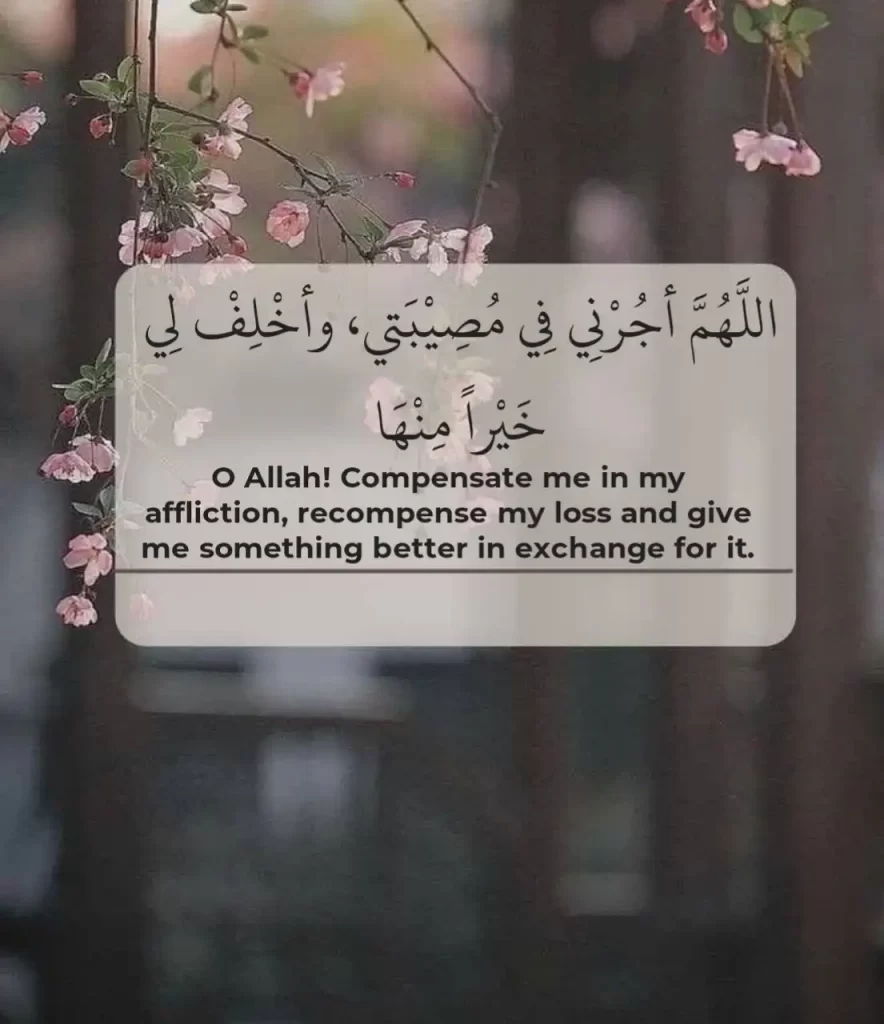
Breakdown of the dua
Let’s break down this beautiful dua into a listicle format with details to explain its significance and the context in which it can be used.
1. Introduction to the Dua:
- In times of calamity, misfortune, or suffering, turning to Allah for help and solace is a common practice among Muslims.
- This dua is a heartfelt supplication, an earnest plea for relief, compensation, and the promise of something better from Allah.
2. The Essence of the Dua:
- “O Allah! Compensate me in my affliction, recompense my loss and give me something better in exchange for it.”
- This dua encapsulates the essence of seeking strength through adversity and trust in Allah’s divine plan.
3. Acknowledging the Difficulty:
- This dua begins by acknowledging the pain and suffering experienced. It recognizes that life can be tough, and misfortunes can be overwhelming.
4. Turning to Allah for Comfort:
- By saying “O Allah!” at the beginning, the supplicant turns to their Creator for comfort and relief.
- It signifies an act of submission and reliance on the divine power of Allah.
5. Seeking Compensation:
- “Compensate me in my affliction” – This part of the dua implores Allah to provide solace, healing, and a way to ease the pain and suffering.
- It is an appeal for immediate relief from the calamity.
6. Recompensing Loss:
- “Recompense my loss” – In moments of loss, this dua asks Allah to grant a return of what was taken away or lost.
- It reflects the desire for restoration and recovery.
7. The Promise of Something Better:
- “Give me something better in exchange for it” – This part of the dua signifies a profound trust in Allah’s wisdom and plan.
- It acknowledges that Allah, in His infinite wisdom, can replace what was lost with something superior, whether in this world or the hereafter.
8. Applying the Dua in Real Life:
- This dua can be used in a wide range of situations, such as illness, financial difficulties, the loss of a loved one, or any personal crisis.
- It serves as a source of hope and resilience, reminding the supplicant that there is a greater plan beyond their immediate suffering.
9. Emotional and Spiritual Healing:
- The act of reciting this dua can bring emotional and spiritual healing, offering solace and hope during tough times.
- It helps maintain a strong connection with Allah, fostering patience and gratitude in adversity.
10. Conclusion:
- In times of calamity and misfortune, this beautiful dua encapsulates the core values of patience, reliance on Allah, and trust in His plan.
- By seeking compensation and something better, it guides believers to face adversity with courage and faith, knowing that Allah’s wisdom surpasses human comprehension.
Remember that the power of this dua lies not only in its words but in the sincerity and devotion with which it is recited. It is a powerful tool for finding strength and resilience in the face of life’s trials and tribulations.
Advertisements

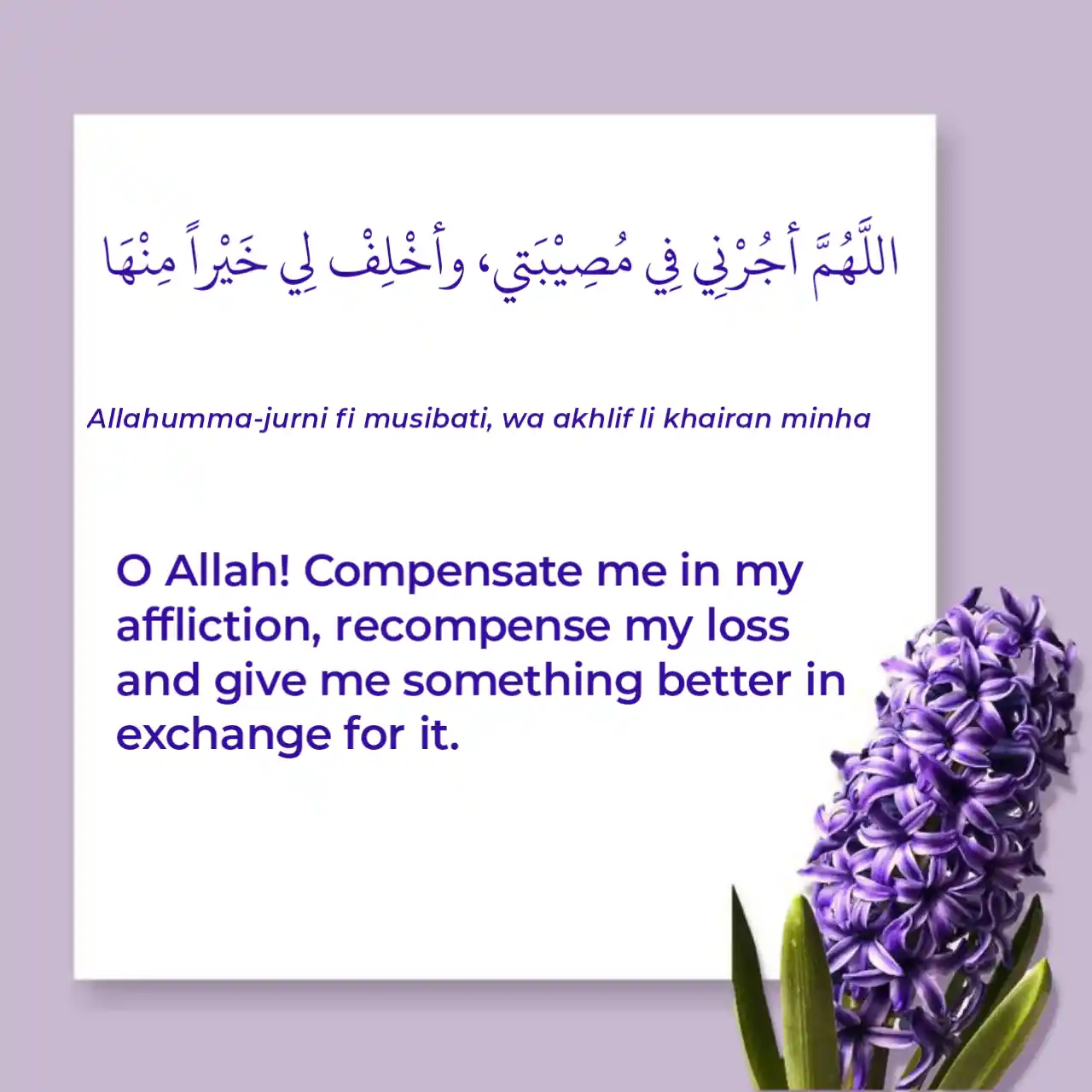
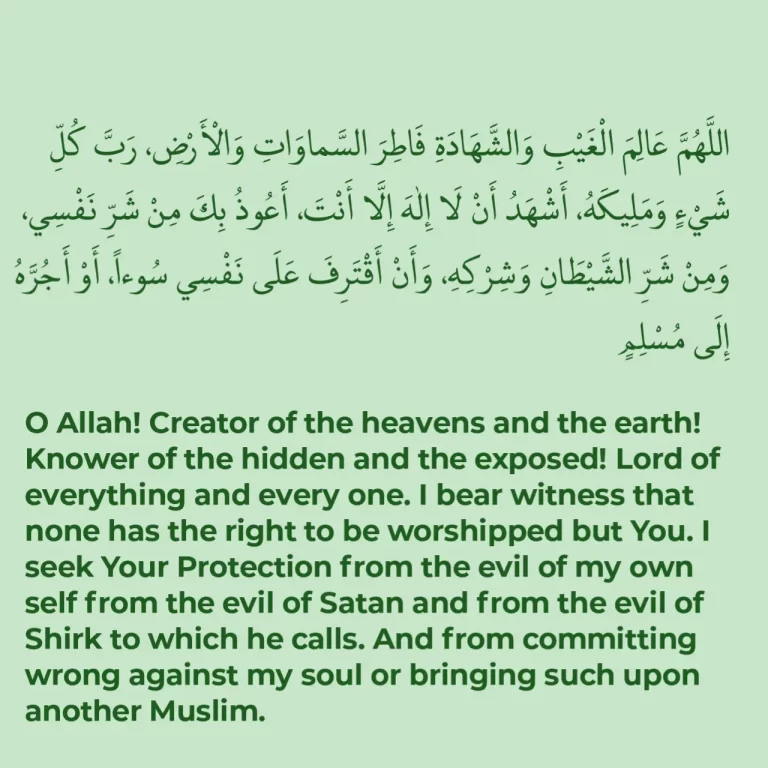

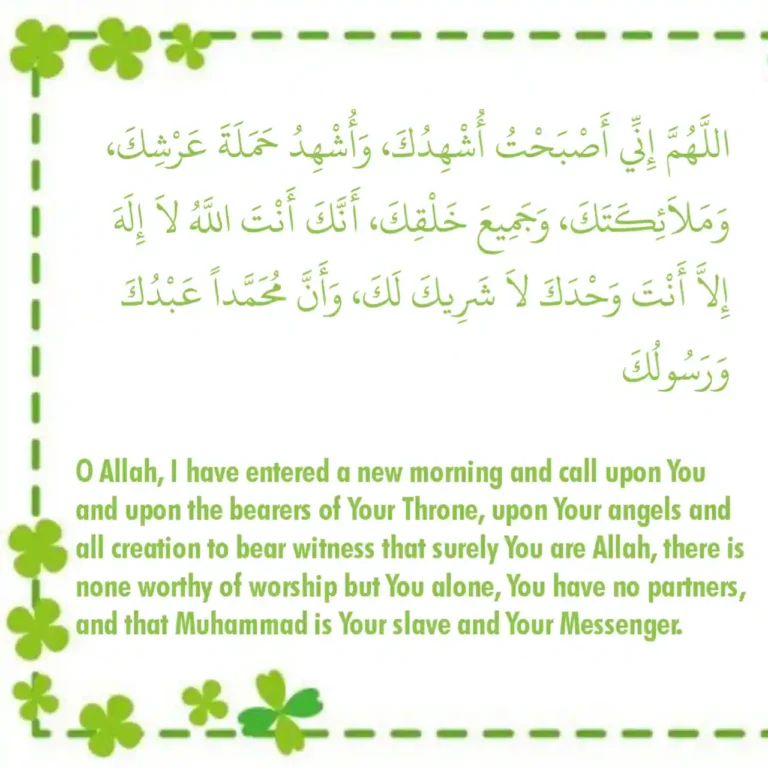
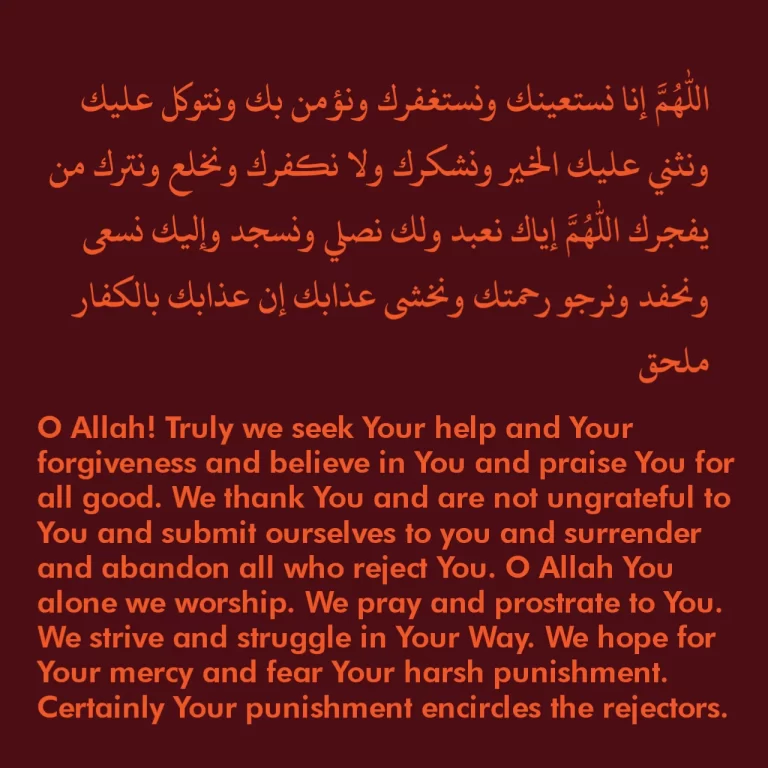
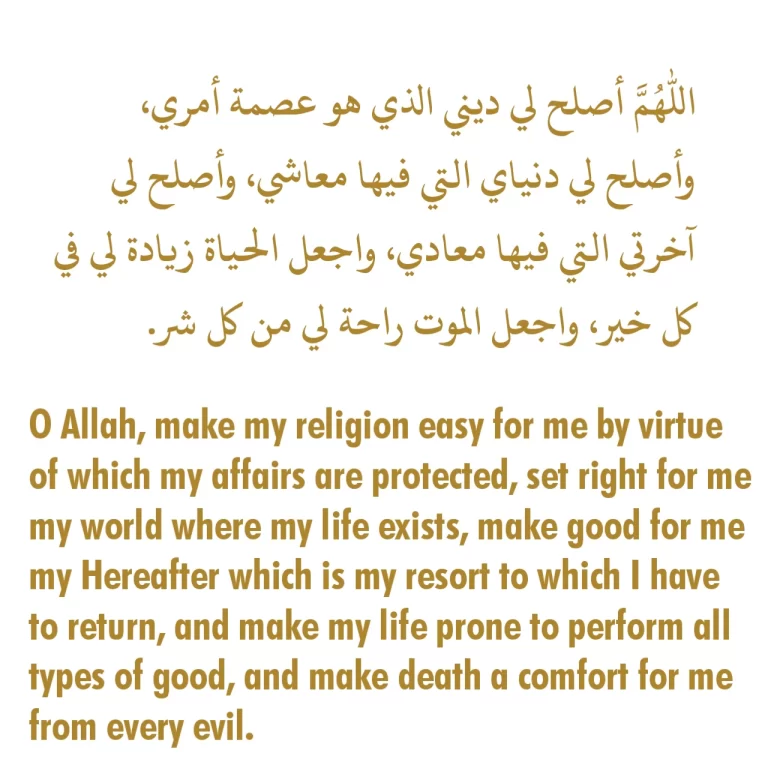
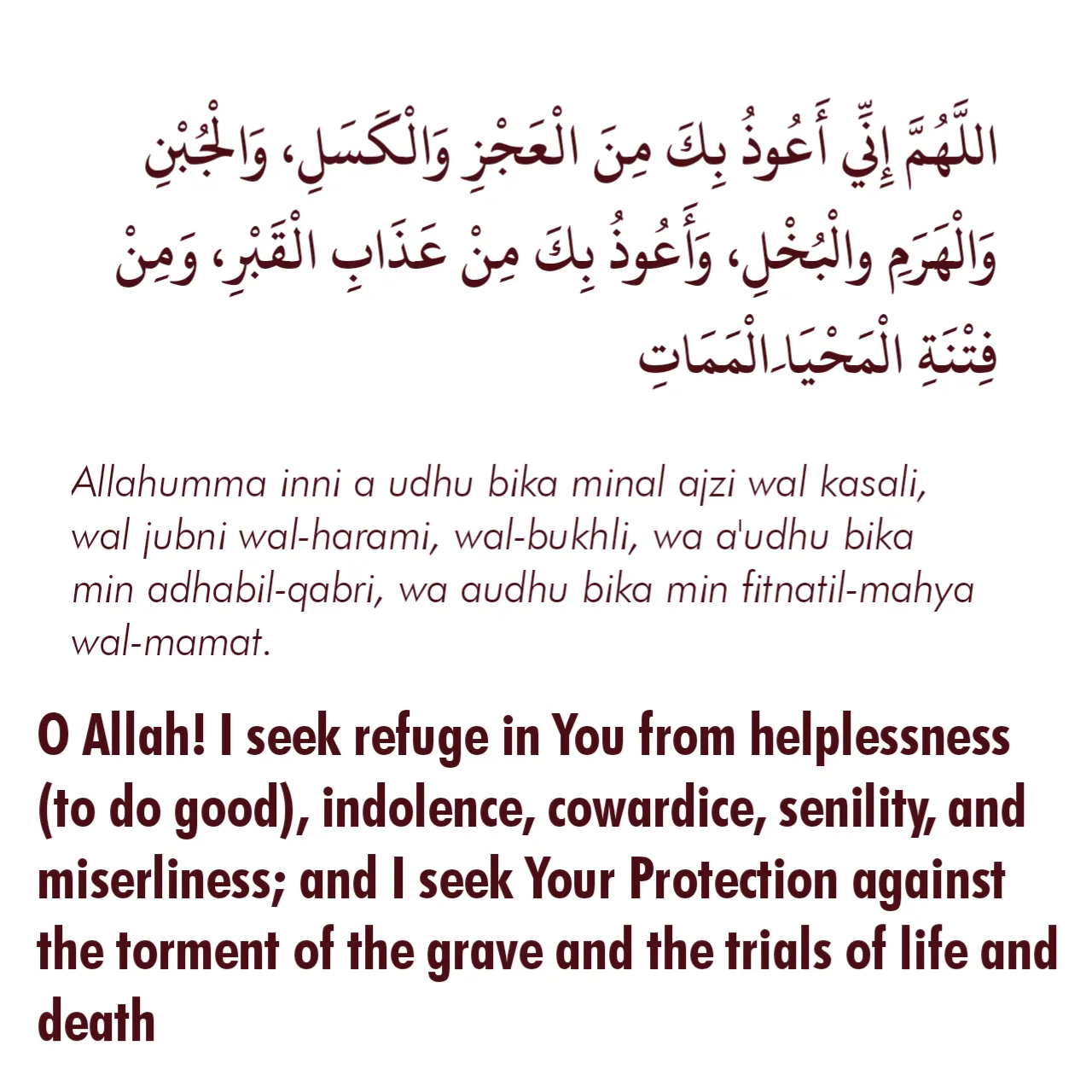
3 Comments